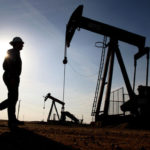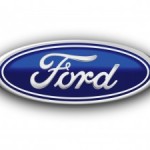The board of scandal-hit German carmaker Volkswagen AG are expected to name today Porsche chief Matthias Müller as the companys new CEO after the position was vacated on Wednesday.
Mr. Müller, who is close to the Piech and Porsche families, will replace Martin Winterkorn who resigned after leading the company for eight years, and will be tasked with the difficult job to steer Volkswagen out of its worst crisis in its 78-year history. In a more immediate manner, Mr. Müller will need to improve communications with customers and dealers, who have expressed frustration about not being informed on how they will be affected by the scandal.
The automakers board will also decide at its meeting on Friday which managers must leave the company. A senior source told Reuters that VWs head of US operations, as well as top engineers at Audi and Porsche, will be dismissed.
The scandal burst after the US Environmental Protection Agency and the California Air Resources Board disclosed on Friday that the carmaker used a so-called “defeat device” software to make diesel-powered engines appear during laboratory tests as emitting lower levels of emissions than they actually do in normal exploitation. The EPA said that diesel variants of several Volkswagen and Audi models sold in the US had been equipped with sophisticated algorithms to manipulate test results.
According to experts, they allow cars to achieve better fuel economy during normal driving at the expense of higher nitrogen-oxide emissions, up to 40 times the allowable standard, and can enable full emissions controls only during testing in order to pass.
Volkswagen admitted to the wrongdoing and halted sales in the US of diesel cars fitted with its popular four-cylinder 2.0-liter turbo direct injection. The EPA said that 482 000 vehicles sold in the US since 2008 were affected but the company later announced that it had installed the software on as many as 11 million cars worldwide. It issued a profit warning, saying it was taking a €6.5-billion provision against earnings to cover the costs of fixing the vehicles.
“Our company was dishonest with the EPA, the California Air Resources Board, and with all of you,” Michael Horn, head of Volkswagens US operations told customers and dealers in New York on Tuesday. “We screwed up.”
The crisis deepened on Thursday as European and US officials stepped up their investigations. The German government announced that the company had manipulated emissions in Europe as well.
Alexander Dobrindt, Germanys transport minister, told reporters that a government commission tasked to investigate the scandal had been informed by the automaker that cars with 1.6 and 2.0 liter diesel engines in Europe were also affected by the manipulations.
Patrick McLoughlin, Britains Secretary of State for Transport, said that the UK government was taking VWs actions “extremely seriously”.
The scandal has rippled through the entire car market, with manufacturers fearing a drop in demand for diesel-powered cars and tougher regulations. The European Commission called on member states to conduct a EU-wide investigation into whether carmakers have manipulated vehicles behavior during emissions tests.
Both Standard & Poor’s and Moody’s put VWs credit rating on watch on Thursday for a potential downgrade, with S&P expecting the company to incur “substantial remediation costs” to fix the engines of the affected cars and to potentially face material fines from regulators. Credit Suisse analysts said the €6.5-billion provision taken by the company could be exceeded by far.
Volkswagen AG traded 1.56% higher at €113.90 per share at 09:22 GMT in Frankfurt, trimming its year-on-year drop to 31.61%. The company is valued at €55.35 billion. According to the Financial Times, the 26 analysts offering 12-month price targets for Volkswagen AG have a median target of €182.50, with a high estimate of €290.00 and a low estimate of €88.00. The median estimate represents a 62.73% increase from the previous close of €112.15.





